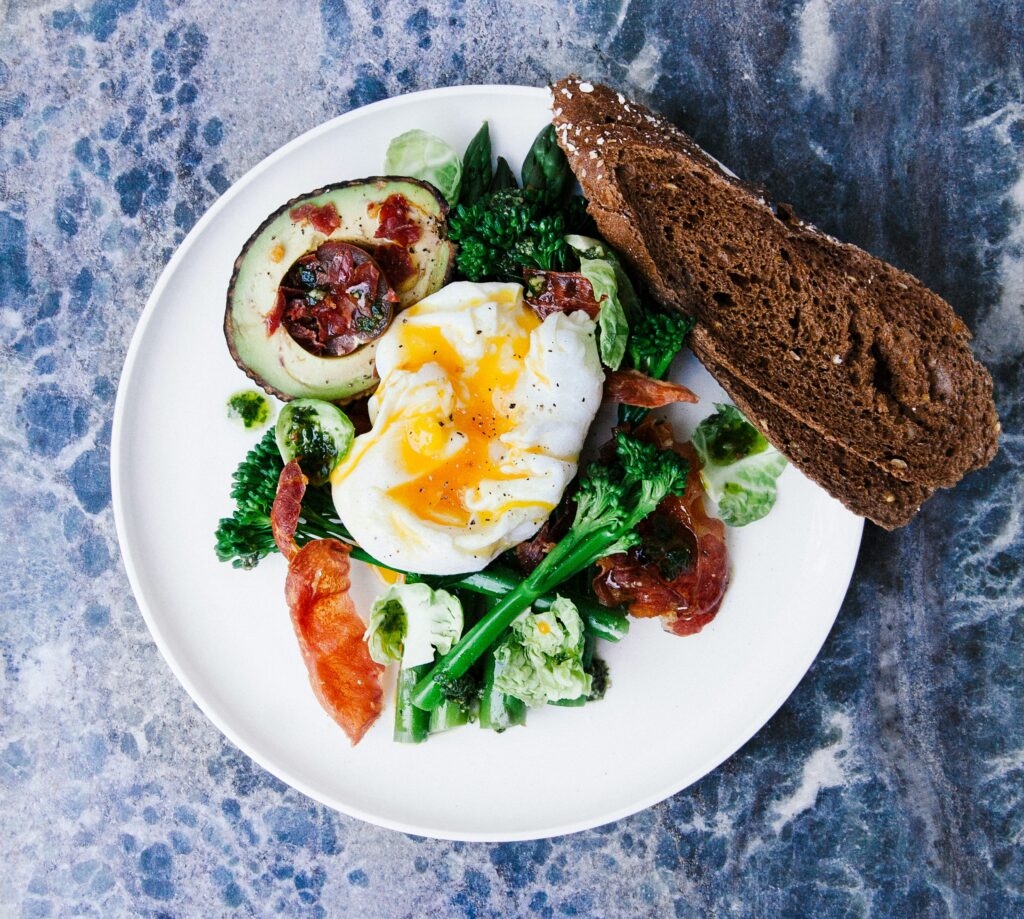It’s a busy weekday morning, and you rush out the door with nothing but a coffee in hand. By mid-morning, you’re sluggish, distracted, and thinking about lunch. Sound familiar?
For years, we’ve heard the saying, “Breakfast is the most important meal of the day.”
While some dismiss it as a marketing slogan, there’s solid evidence to support its truth. Eating a nutritious breakfast can set the stage for a productive and energized day.

The Science of Breakfast
When you wake up after a night’s sleep, your body has gone hours without food. Breakfast, literally “breaking the fast,” provides the first fuel your body and brain need to kickstart the day.
- Boosts Metabolism: Eating in the morning activates thermogenesis, the process by which your body converts food into energy. This jumpstarts your metabolism, helping you burn calories more efficiently throughout the day.
- Stabilizes Blood Sugar Levels: A balanced breakfast prevents sharp spikes and crashes in blood sugar, reducing feelings of fatigue and irritability.
- Replenishes Energy: During sleep, your glycogen stores deplete. Breakfast replenishes these stores, providing the energy needed for physical and mental tasks.
Cognitive and Physical Benefits of Breakfast
Breakfast is more than just fuel—it’s brain food.
- Enhanced Focus and Memory: Studies show that eating breakfast improves concentration, memory, and problem-solving skills. This is especially evident in children and students, but adults also benefit.
- Improved Physical Performance: Athletes and active individuals rely on breakfast to optimize stamina and endurance. Whether it’s a workout or a busy workday, breakfast provides the energy to perform at your best.
- Mood Regulation: A well-fed brain is a happy brain. Breakfast helps regulate mood by stabilizing serotonin levels, reducing stress and anxiety.
Skipping Breakfast: What Happens?
Skipping breakfast might seem harmless, but it can have immediate and long-term effects on your health and well-being.
- Hormonal Imbalance: Skipping breakfast raises cortisol (the stress hormone) levels, which can make you feel on edge.
- Overeating Later: Research indicates that people who skip breakfast are more likely to consume larger meals later, often opting for high-calorie, less nutritious foods.
- Fatigue and Brain Fog: Without morning fuel, your body conserves energy, leading to slower metabolism, fatigue, and reduced productivity.
What Makes a Healthy Breakfast?
Not all breakfasts are created equal. A donut and coffee might satisfy your cravings temporarily, but they won’t provide sustained energy. A healthy breakfast includes:
- Proteins: Eggs, Greek yogurt, or plant-based alternatives help build and repair tissues.
- Healthy Fats: Avocado, nuts, or seeds provide long-lasting energy and support brain function.
- Complex Carbs: Oatmeal, whole-grain bread, or quinoa offer slow-releasing energy.
- Fiber: Fruits, vegetables, or chia seeds aid digestion and keep you full longer.
Example Breakfast Ideas:
- A veggie-packed omelet with whole-grain toast.
- Greek yogurt topped with granola and fresh berries.
- Overnight oats with almond milk, chia seeds, and banana slices.
Breakfast and Long-Term Health
Regular breakfast consumption is linked to:
- Weight Management: Breakfast eaters are less likely to overeat later in the day, which can help maintain a healthy weight.
- Reduced Risk of Chronic Diseases: Studies suggest that breakfast reduces the risk of type 2 diabetes, heart disease, and high cholesterol.
- Better Emotional Well-Being: Starting the day with a balanced meal can improve mood, reduce stress, and promote mental clarity.
Cultural Perspectives on Breakfast
Across the globe, breakfast traditions vary but share a common goal: providing nourishment and energy.
- Japan: Miso soup, rice, and grilled fish—a savory and balanced start.
- Mexico: Chilaquiles, featuring tortillas, eggs, and salsa for a hearty, flavorful morning meal.
- India: Idli or dosa, paired with chutneys and sambar, offer a nutritious, plant-based option.
- Western countries: Cereal, toast, or pancakes—quick but often less nutrient-dense.
Exploring diverse breakfasts can inspire you to add variety and nutrients to your own routine.
Tips for Making Breakfast a Habit
For many, the biggest challenge is time. Here’s how to make breakfast doable:
- Prep the Night Before: Set up ingredients or cook meals like overnight oats or egg muffins in advance.
- Quick Options: Smoothies, whole-grain toast with nut butter, or a piece of fruit with cheese are fast and nutritious.
- Start Small: If you’re not hungry in the morning, begin with a light option like a banana or a handful of nuts.
- Set a Routine: Make breakfast a non-negotiable part of your day, just like brushing your teeth.
Breakfast truly lives up to its reputation as the most important meal of the day. By fueling your body and brain with a balanced meal, you set the stage for a productive, energized, and healthier day.
While skipping breakfast might seem convenient, the long-term benefits of making it a priority far outweigh the extra minutes of sleep or the rush to get out the door.
So tomorrow morning, take the time to nourish yourself—you deserve it. After all, the key to thriving during the day starts with what’s on your plate.









